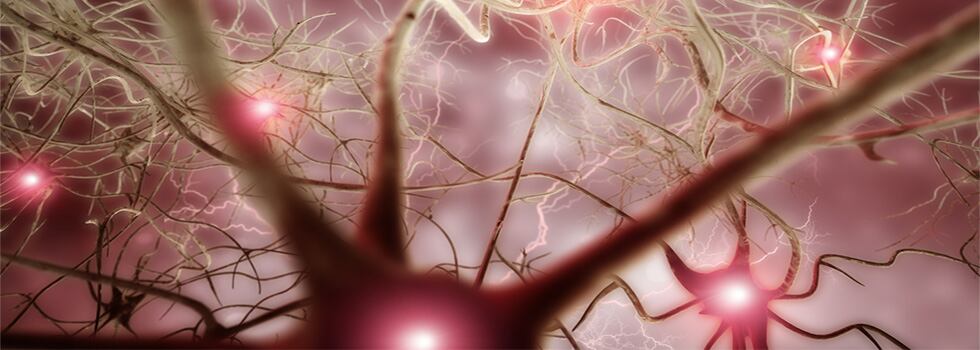Transparency, certification, sustainability, branding. With OptiPEA (palmitoylethanolamide), Innexus Nutraceuticals offers companies the opportunity to effectively respond to the ever-increasing demand for chronic pain relief. The use of opioids takes epidemic forms and CBD (cannabinoids) encounters limits with regard to regulations and quality criteria. OptiPEA offers a proven and branded alternative that is immediately available for the market.
Chronic pain: A new specific diagnosis
The attempt to understand pain represents one of the oldest challenges in the history of medicine and is one of the most common causes for patients to seek medical care. Although the mortality rates for other conditions are higher, chronic pain is the main source of human suffering and disability.1 In the latest version of its International Classification of Diseases (ICD-11), the World Health Organization has for the first time adopted a specific diagnostic code for chronic pain, including sub-codes for various general chronic pain conditions.
Opioid use out of control
For a long time attempts have been made to effectively combat chronic pain with opioids. But the problem with chronic opioid use is that they cause a series of side effects, including respiratory depression, constipation, cognitive impairment and psychiatric symptoms such as anxiety and depression. In addition, chronic opioid use can lead to physical tolerance and dependence, and introduces the risk of addiction.2 The scientific literature has long spoken of an outright opioid epidemic.3
Looking for other strategies
Interest in alternative methods for pain relief, including pain relief through the cannabinoid system, has increased noticeably over the past decade. However, many companies are reluctant to include CBD and hemp-based solutions in their product line because they do not meet the criteria set out in the quality, regulatory and research and development departments. Besides that, CBD can cause side effects, such as dry mouth, diarrhea, reduced appetite, drowsiness and fatigue. CBD can also interact with other common medications. Patients using these products, whether for medical or non-medical purposes, together with conventional therapeutic agents may be at increased risk of adverse events, including therapeutic failure, and require enhanced monitoring.4
A new possibility to innovate and expand in this product range is palmitoylethanolamide (PEA). PEA is a cannabimimetic considered by some people to be a better alternative to hemp-based cannabinoid products. For example, PEA is easier to dose (it is less complex as a single molecule), it has more known mechanisms of action and has a longer track record.5 PEA offers a proven solution that is immediately available for the market.
Branding, transparency, quality and sustainability
For both companies and consumers, branding and transparency stand for quality and trust. With a patented, fully European production process, a GMP-certified production environment (Good Manufacturing Practice) and RSPO (Roundtable on Sustainable Palm Oil) certification, Innexus Nutraceuticals presents a clear vision for market leadership based on current trends and requirements.
Collaboration with IMCD
Earlier this year, the multinational IMCD became the OptiPEA-distributor in most parts of Europe. As a leading distributor of specialty chemicals, food ingredients and pharmaceuticals, IMCD offers great value to Innexus Nutraceuticals through their expertise and in-house technical specialists.
About PEA
PEA is a multifaceted nutraceutical with a fascinating history and oftentimes unrecognized potential. In case of chronic pain and inflammation, the body simply cannot make enough PEA, which is when supplementation can help. PEA as a dietary supplement increases the amount in tissues wherever shortages occur. PEA is safe to use and has no negative interactions with other nutraceuticals or prescribed medications.
In addition to a natural solution for pain relief, PEA is also used for a spectrum of complex disorders often associated with unmet therapeutic needs, including autoimmune disorders, neurodegenerative disorders and mood disorders.5,6 PEA is a single compound that can synergistically - directly or indirectly - balance multiple disrupted molecular pathways, thereby alleviating various complex clinical disorders.
With more than 60 indications for use, PEA can be used as a stand-alone solution, but also as an ingredient for unique and patented formulations. In addition to OptiPEA, Innexus Nutraceuticals also has a water-soluble version with a clean-label profile.
Sources
(1) William Raffaeli and Elisa Arnaudo. 'Pain as a disease: an overview' Journal of pain research. Published online 2017 Aug 21. doi: 10.2147/JPR.S138864
(2) Genevieve D’Souza, Anava A. Wren, Christina Almgren, Alexandra C. Ross, Amanda Marshall, Brenda Golianu. 'Pharmacological strategies for reducing opioid therapy and the management of side effects through chronic use.' Children 2018, 5(12), 163
(3) Mark R. Jones, Omar Viswanath, Jacquelin Peck, Alan D. KayeJatinder S. Gill, Thomas T. Simopoulos. 'A Brief History of the Opioid Epidemic and Strategies for Pain Medicine'. Pain and Therapy: June 2018, Volume 7, Issue 1, pp 13–21.
(4) Foster BC, Abramovici H, Harris CS. 'Cannabis and Cannabinoids: Kinetics and Interactions.' American Journal of Medicine. 2019 May 29. pii: S0002-9343(19)30453-X.
(5) Artukoglu BB, Beyer C, Zuloff-Shani A, Brener E, Bloch MH. 'Efficacy of Palmitoylethanolamide for Pain: A Meta-Analysis'. Pain Physician: 2017 Jul;20(5):353-362.
(6) De Gregorio D, Manchia M, Carpiniello B, Valtorta F, Nobile M, Gobbi G, Comai S. 'Role of palmitoylethanolamide (PEA) in depression: Translational evidence'. J Affect Disord. 2018 Oct 25.




